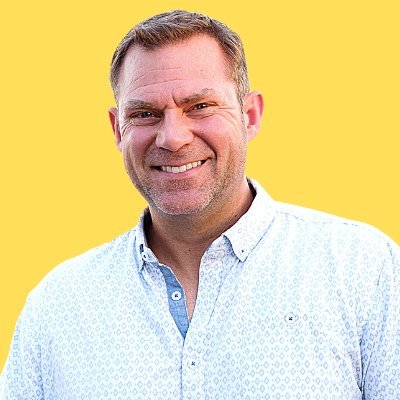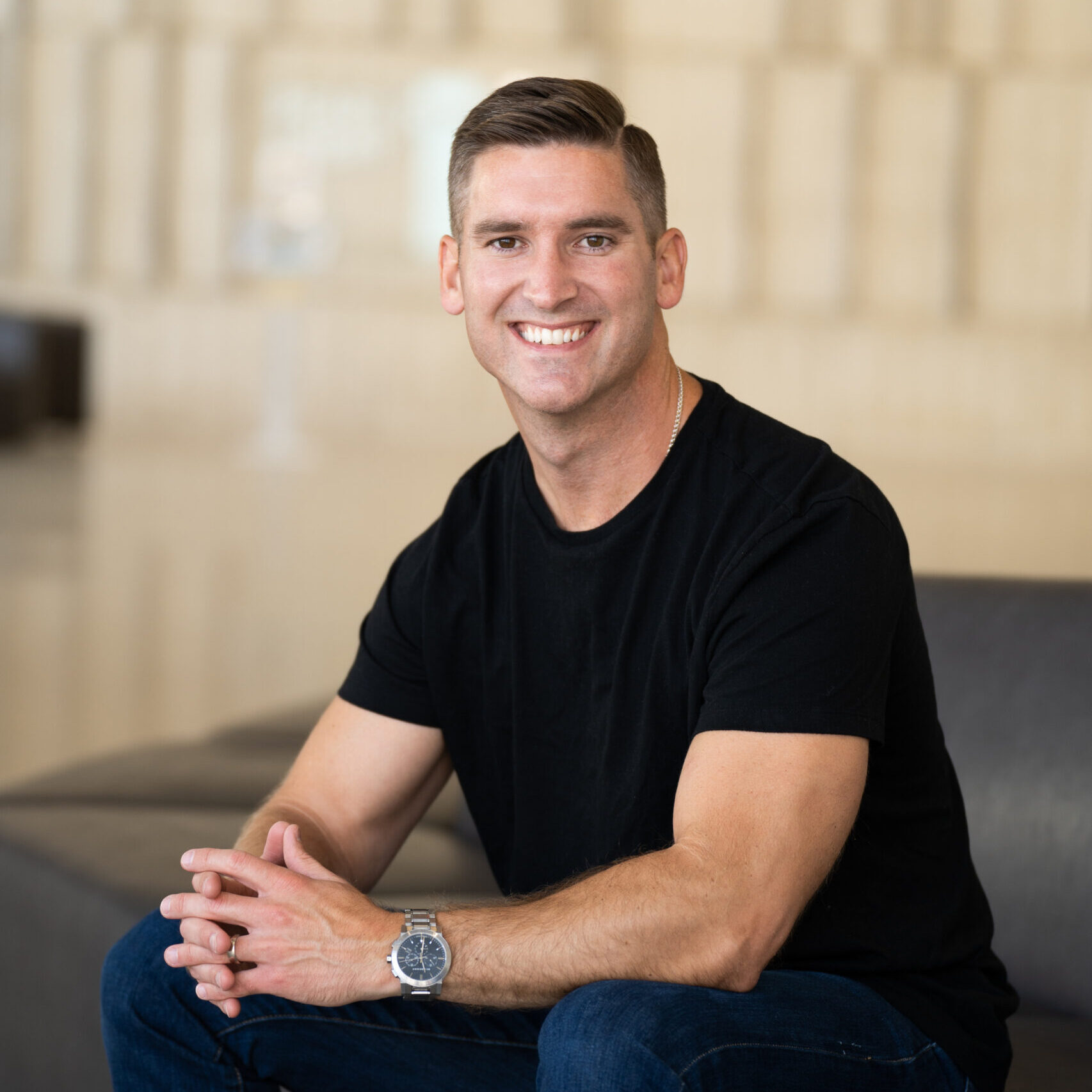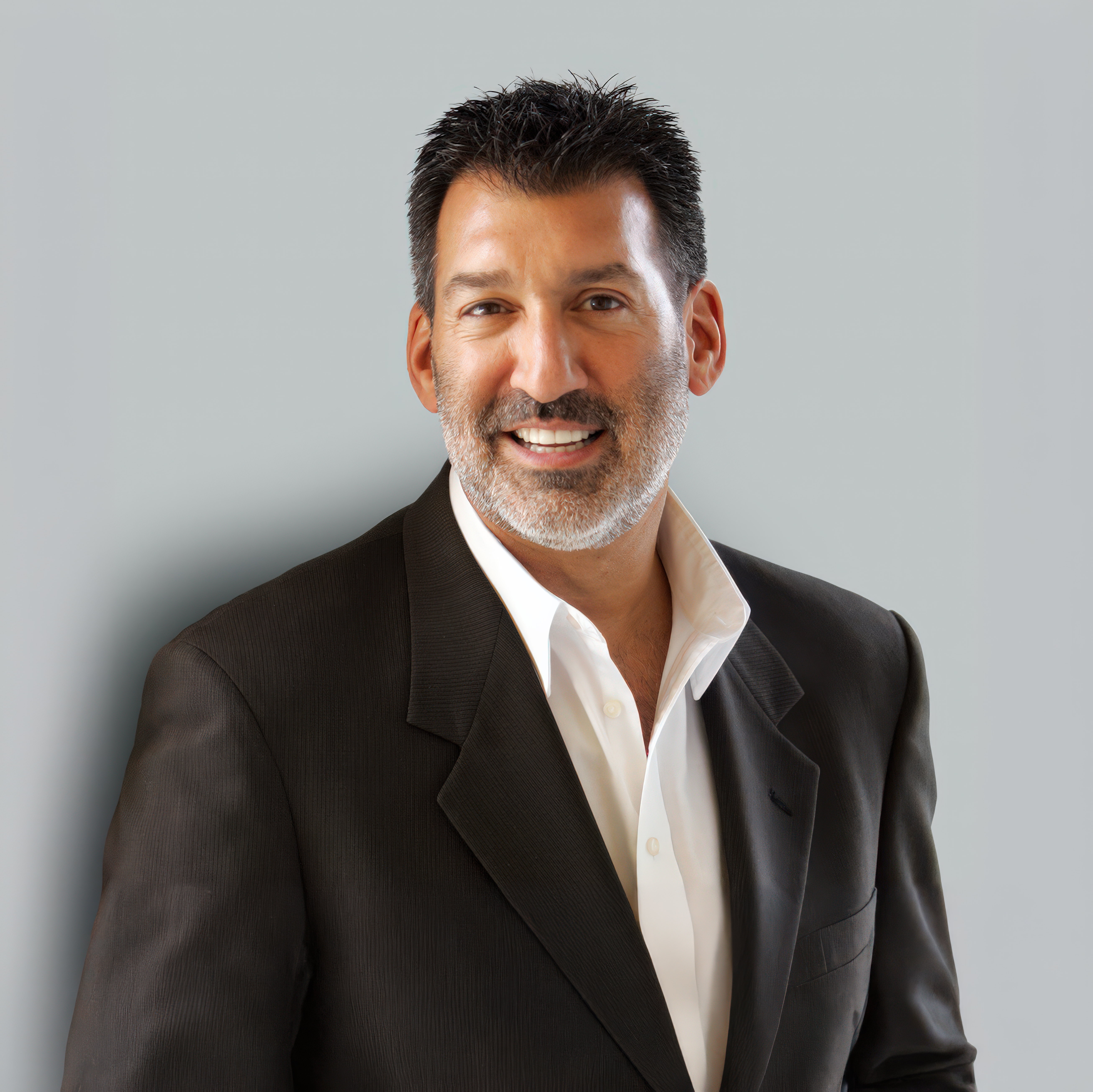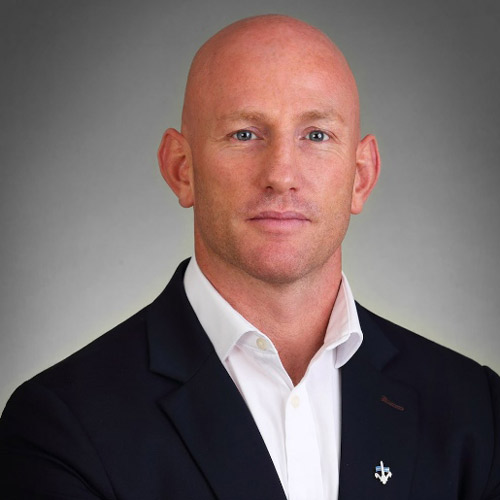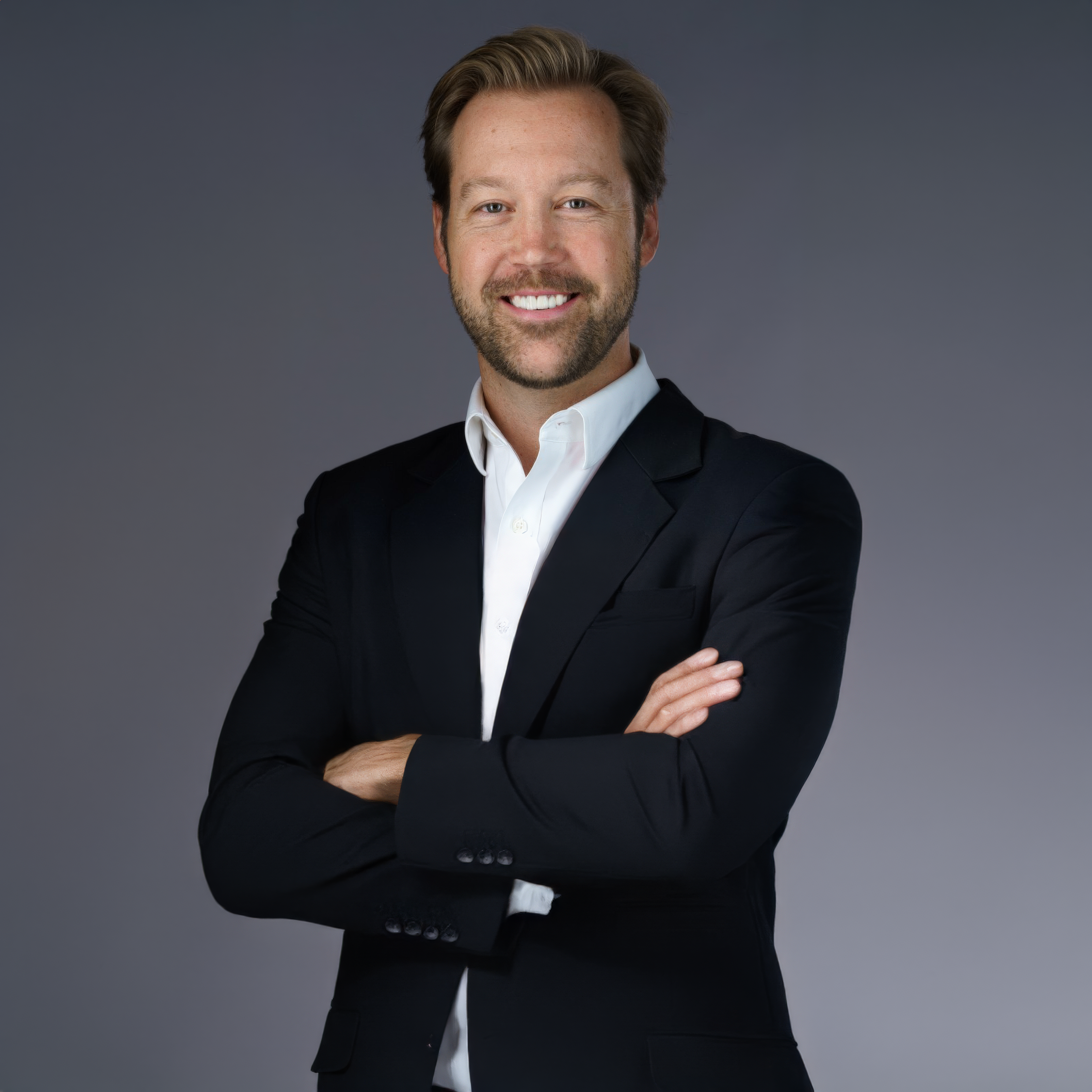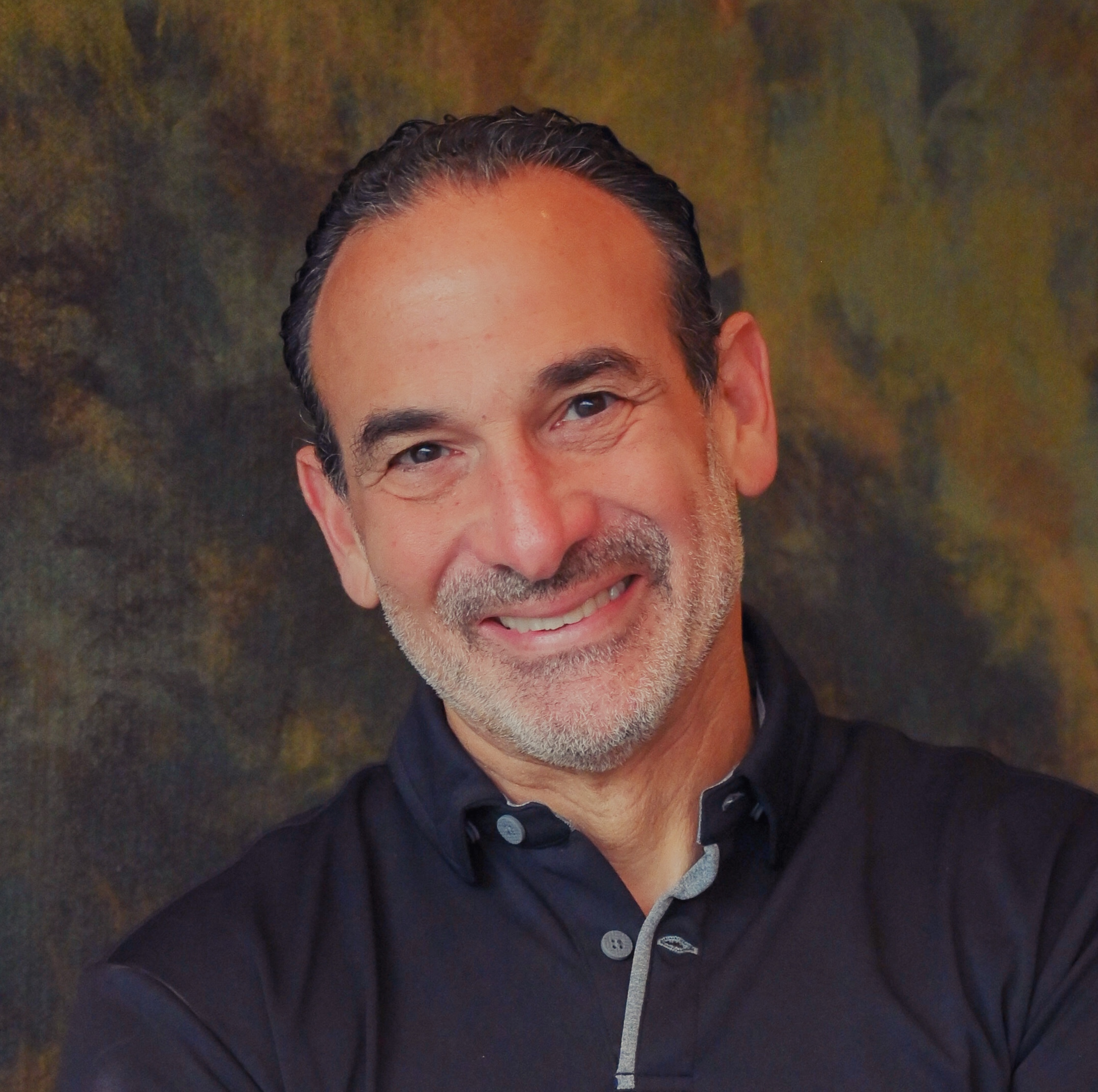RV (00:02):
Hey, I’m so excited to introduce to you someone that has become a friend over the years just being in this space, John R. Miles. And he is the founder of a movement, I’ll call it, a movement called Passion Struck. So he is an authority on behavioral change, and we’re gonna talk some about really like the science behind behavior change. And that’s a really important thing to him. But basically all things personal growth. And he’s just a really inspiring guy. And his, he has a podcast that is an award-winning podcast. It’s called Passion Struck with John R. Miles. And he, we’re gonna talk about this too, because it’s been really impressive to see what has happened with his show. He’s had amazing, amazing guests on there. I mean, Marshall Goldsmith, Jim Quick, Gretchen Rubin, mark Hyman. You know, like so many of my friends and colleagues, lots of our brand builders, group clients Dan Pink, Dan Dan’s not a a client, but he’s a friend.
RV (00:58):
And then a lot of our brand builders, group clients, you know, Jen Gottlieb, Dr. Gabrielle Lyon it goes on and on and on and just really amazing. And so I want to hear his story, but he’s got the book coming out. Passion Struck is just coming out now. And so he has been recognized by a few different places as like one of the top alternative health podcasts. And he’s got experience in over two decades he spent in corporate and military leadership. And so anyways, he’s just a really fascinating guy and has some remarkable achievements. And I felt like you need to hear and know John Miles. So John, welcome to the show.
JRM (01:42):
Hey, Rory, it is so amazing to be here and I’ve been looking forward to this for like two weeks, so, so thankful to be here. That’s
RV (01:49):
Really great, man. I, you know, I wanna start by talking about the book ’cause I know that you’re really big on behavioral science. So tell us like, what is the idea behind Passion Struck as a movement and sort of a premise. And then I would love to hear a little bit about some of the behavioral science that is, is kind of behind your, your writing in the concept.
JRM (02:13):
Yeah, so I think a good introduction to this, and it’s how I start out the book, is one of my favorite quotes is by Henry David Thoreau. And he says that the mass men lead lives of quiet desperation. And that’s how I was living myself. Part of your teaching is we’re best positioned to serve the person that we once were, and that’s who I was. And when it happened to me, it was at what most people would’ve thought the pinnacle of my career. Here I am Fortune 50 CIO, making seven figures plus, wow, have the house, have the cars, have everything you would want. But I think what ends up happening is in the success driven society, we find ourselves in, we’re, we’re orienting our success around the wrong things in life. And what it brought me was a complete utter burnout, numbness, et cetera. And so when I found myself at that state, I tried to think using your one word problem, like what was it? And it’s, it’s not an easy thing to do. I mean, I struggled with this one word problem, but you,
RV (03:24):
You and every, every brand builders group client is, it’s such a hard, it’s like such a simple question, but so hard to answer, right? Like, what problem do you solve for your audience in one word? And, and that’s my story too, right? That’s where we came up with this. I struggled with it. I had a mentor ask me that, but it, it is hard, it’s hard to answer that. So what did you come up with?
JRM (03:43):
Well, I started coming up with things, working with my coach that turned out to be symptoms. So I came up with a apathy and, and other things. And what I figured out it was, was anti-matter unmuting the fact that we reached this point where we feel like we don’t matter to others, we don’t matter to the world, we don’t matter to ourselves. And I think it is such a profound thing because it’s literally impacting billions of people across the planet. I mean, you just look at what Gallup is saying, and there are 900 million people in 142 countries who are unfulfilled with what they’re doing day in, day out. Said another way. Tom Gilovich psychologist at Cornell just put out a study in 2018 examining thousands of people about their biggest regret in life. And it wasn’t our biggest mistakes, it was the would haves, the should haves that we could have accomplished. It’s, it’s the lack of pursuing our ideal life. So passion struck is really about that pursuit. How do you become one of the five percenters? How do you 10 x your life so that you live it in the most fulfilled way you possibly can?
RV (04:57):
Mm-Hmm, . Yeah. I mean, it, it’s it’s amazing how easy it is to just kind of almost get into this river, this flow of you go to school, go to college, graduate, get a job, and then all of a sudden it’s like, you know, you just kind of going through the motions of 20 years. You’re like, man, I, a lot of people who didn’t, and they never designed their life, they never said, gosh, this is what I really want and go after it. Or they, they really went after something, but it wasn’t the thing they really wanted. It was like the thing they were, they were supposed to do. So, you know, when you say un mattering you know, or I process that as like insignificance, right? And, and I know you talk also a lot about significance. So what, as, as I think about our audience and this show, right?
RV (05:44):
And the people, the mission-driven messengers who are in our community and, and, and, and not just our clients, but the ones who listen to this show, finding their passion is a huge part of building their personal brand. It’s a huge part of breaking through Sheehan’s Wall, as we call it. It’s, it’s a huge part of m making it as a successful business. Like making your personal brand into a successful business is so closely aligned with nailing and finding and being clear on your passion. So how do we find that passion? I mean, I think if people know when they don’t have it. So how do we, how do we find it?
JRM (06:24):
Well, man, Rory, I I’ve got a great story for you. So I know you and aj are are both religious as, as am I and as I was
RV (06:36):
At this, yeah, we’re not just religious. I mean, we’re hardcore Bible thump and Jesus freaks, right? , like, I, I don’t, I don’t know if you saw it, but I released a whole po a separate a 20, I recorded a 15 episode podcast called Eternal Life, seven Questions Every Intelligence Skeptic Should Ask About Jesus of Nazareth. And it’s just like a logical academic historical, and it’s not an ongoing, it was, I released all 15 episodes at once. It was too much content to put on this show. But yeah. So anyways, yeah, I, we, we, we are, we are, we’re spiritual that way and religious, and mostly just we’re Jesus people.
JRM (07:09):
So what I found is the biggest barrier to truly understanding what your pap passion and purpose are on this planet is that we don’t listen to that inner voice because we’re so distracted by what’s going on around us that we’re not really in tune to what it’s really calling us to do. And I remember interviewing Andreas Wooder, not sure if you know him, but he Uhuh he started the business school at Catholic University in in dc. But he was just this guy who went in, he was in his late teens, was completely listless. He had no direction and ends up applying to be a Swiss guard, never thought he would get it. And he ends up getting selected and being one of the Swiss guards for Pope John Paul ii. And he told me that Pope John Paul II was just amazing in that when he was with you, you felt like nothing else in the world mattered.
JRM (08:09):
And he became this incredible mentor to him. But he told him that, Andreas, your issue is that you’re not discovering your uniqueness. He said, God’s pursuit for you is he’s put you here to solve a problem that only you can solve with the skill sets that he’s given you. And it is your life’s journey to find this uniqueness and then exploit it in serving others, which is basically the whole message that you and AJ teach. But as I was looking at this for myself, I had been getting this inner voice for a while, but I didn’t understand how to process it because it was telling me, John, I want you to go out and help the lonely, the hopeless, the beaten, the board, the battered, the broken. And here I am sitting as CIO of this company thinking, what the heck am I supposed to do with this?
JRM (09:03):
And I don’t think this finding your purpose is something that you just flip a light switch on. To me, it all started when I really doubled down into my mindfulness practice, got rid of the noise, and really focused on self-awareness and self-compassion. And I started really leaning into what did those words mean? And that’s kind of how I came to this whole conclusion that it’s really about people not feeling like they matter. And that’s why we have that mental health issues. We have so many people feeling lonely, helpless, whatever you have, but then it’s, you can’t use that as your marketing blueprint, of course. So it really took me, once I understood that’s what I was trying to do, it was then how do you approach this with the audience in a way that it resonates with them? And so for me, that became the power of intentionality. How do you create an intentional life?
RV (10:00):
Hmm.
RV (10:01):
So if you, if you walk down that and you go, I love that idea of intentionality, sounds like a uniqueness, what we would call a uniqueness, right? Is to go, okay, the cured insignificance is intentionality. Where do you start with that intentionality? Like what’s, what are the, what are the first things that we should be intentional about that will lead us towards finding that passion? Or like you’re saying, like we believe it’s a divine design of each person. Just like kind of what Pope John Paul, the, the second was saying there is like, we believe that it is a part of how we are divinely designed is to, is is to to serve a purpose. So if if someone’s listening right now and they’re kind of feeling that way insignificant, or they’re burnt out, or they’re realizing like they’re just not loving what they’re doing, what are some of the things they should be intentional about first?
JRM (10:59):
Well, this really goes into the core aspects of my book, and let me just set this up for you. So this thing just didn’t come out of thin air, and I think it’s important for the listener to understand that I have always been passionate about leadership. It’s what led me to ultimately going to the Naval Academy instead of going to other public universities I got into. But as I was going through, I really started to, to look at, you know, what made some of the greatest Naval and Marine Corps leaders of all time. Like, what allows someone like General Stan McChrystal to do what he does and why do some of us fall short? And it really launched me on this, what is now become a nine year journey of examining over 750 remarkable individuals about what allows them to break through so that they are living this ideal life that they always aspire to.
JRM (12:00):
And and some of your clients are, are doing this. Dr. Gabrielle Lyon, who you mentioned Jen Gottlieb, are, are two great examples. Louis Howes is another one. And what I found was initially about 30 core things. And as I looked deeper and deeper, I boiled it down to that there are 12 principles that they all seem to follow. And it just so happens is I went further and further into behavior science that all 12 of these align with principles of behavior science. So the first principle that I talk about is you need to become a mission angler. And in each one of my chapters, I tell the story by examining people who have perfected this. So in this chapter, I cover Jim McKelvy, who founded Square and Gary V. And Life Crafting is something that I talk to a lot with Hal Hirschfield, who’s a behavior scientist at Anderson School of Business at UCLA.
JRM (12:58):
And it’s really about, if you think about the topic of this chapter, mission Angler, anyone who’s ever been a fisherman, and I live here in Tampa Bay, it’s not as if I get into a boat and just arbitrarily go 20 miles into the Gulf and hope that wherever I put the anchor down, I’m gonna catch fish. Typically, you’re looking at tidal patterns and you’re looking at moon phases, and you’re looking at what’s, what fish are in season right now, and where do they typically migrate to during different times of the day and moon phases. But so many of us, we don’t craft our lives the same way. We leave it up to chance instead of being deliberate about the outcomes that we want. And so one of the things that I talk about is that you need to craft the life you want. It’s, it’s that difference between your actual self, your odd self, and this ideal self that we aspire to become.
JRM (13:56):
And it’s how do you close that gap between where you are now to where you want to be and do it as Ben Hardy says, through the gains, by measuring yourself against who you used to be over time. And at the core of this, Rory, is, is aligning the actions that you’re doing with your intentions, with your aspirations. And people get this causality wrong. They think they’re all, they think that they’re standalone things, and they’re absolutely integrated, because if you’re not being intentional in alignment with your core values, your core beliefs, then it’s gonna lead you astray. You’re not gonna find yourself in those critical moments making the right decisions. And to me, that’s at the crux of having intentionality.
RV (14:46):
I love that. So walk me through that again. You said a align the action, align your actions with your intentions and aspirations, like you’re talking about the relationship there. So are they sequential or like, is is it a hierarchy or like, what’s the, what’s the connection point between each of those?
JRM (15:05):
So the way I describe it in the book is that you have passion, perseverance, and intentionality as the foundation for this. And I looked at Angela Duckworth’s work on grit, passion, and perseverance. And those things kind of make up what constitute your actions. But when you couple that with how you’re intentionally undertaking those actions and then doing it through the lens of your dreams or aspirations, it’s then that alignment of A plus B plus C equals six that ends up compounding as these things come together. So another way to look at this is something that I often talk about is oftentimes we become our own visionary arsonist. And I’m not even, I’m not sure if you’ve ever heard me talk about this before. No,
RV (16:00):
I’ve not, I’ve not heard this, but this is, this seems interesting.
JRM (16:04):
Well, what I mean by this is it’s really self-sabotage. We arson the very things that we want to create in our lives. We arson the growth and achievement because we inadvertently undermine our own progress. It’s akin to programming a destination into your GPS, but then repeatedly taking detours that lead you farther away. And yet we find ourselves doing this all the time because of perfectionism or setting unrealistic goals, procrastination, negative self-talk, odent behaviors, you know, you, you name it. But the problem with this is that it’s taking us further and further away from where we want to go. And this is an absolute great way to look at the synergy of action, intention, and aspiration. Because if you disrupt their harmonious interplay, that’s how this visionary arsonist comes into effect. Because what ends up happening is they’re misdirecting their actions. While they may be engaged in an activity, the actions are not in sync with their intentions or aspirations. So the actions, instead of being in the present moment of anchoring yourself intentionally to them, they become erratic and misaligned. So that, I think that’s a way of looking at it, is you’re, you’re ending up ha wanting to have this alignment, but you keep doing things underneath it that sabotage one element or another of it, and all of a sudden you’re halting your own progress. Mm-Hmm, ,
RV (17:39):
Yeah. It, I think one of the things that, that ha has stuck with me, I’ve been thinking about a lot recently is that it’s just like the reason that most people don’t succeed or have ultra performance is not because of a technical skill. It’s not like a tactical thing they’re missing it’s ’cause of a mental belief system that they have, you know, that’s somehow working against them. And, and it’s like this program, like you’re saying, it’s like a faulty map program that just is, is detouring them, is, is, is pulling them off track. And , I wanted to ask you, I wanted to ask you a little bit about how this applies to your personal brand journey, because, you know, you, you started building your personal brand and specifically your podcast. Your, your podcast has really taken off in the last couple years. So was that an intention that you set very specifically and then, you know, kind of like, did this aligned your actions with that and you know, really started pursuing that? Or like, how did you get the podcast to take off so, so fast for you personally, because this was kind of a newer endeavor, right?
JRM (18:59):
Yeah, so I mean, to give this some backdrop to the listener is it’s not as if four years ago I came here and I had this incredible brand, like Mel Robbins has it. I had come out of this prolonged career being an executive where the majority of the companies I worked for, the last thing they wanted me to have was the personal brand they wanted me to represent and be the face of the company. Now, thankfully, a lot of this is changing, and I highly encourage people to start their personal brand as early as they possibly can. But I remember starting to have these ideas for the book, and I started shopping it to different agents, and the agents all came back to me and said, you know, a how do you know any of this is gonna resonate? What audiences have you tested it on?
JRM (19:47):
And three, how are you even gonna sell it because you don’t have a brand that anyone identifies you with? And so it really put me in a place where I was thinking about how do I get the word out there? And so I started to really use your content pyramid, and I started playing around first with getting blog posts out and social media posts, just testing the ideas. And I was getting some traction, but not as much as I needed. And so I started to really examine podcast, and I started to, to really listening, listen to maybe 15 to 20 different podcasts a week. And before I knew it, I’d probably listened to a hundred different podcasts. And from that I figured out people who were doing it really well, who then became the guidepost for me. And I became really intentional about it.
JRM (20:40):
I know a lot of times people who do podcasts after a season or 10 to 20 episodes, they stop. And I knew I didn’t want to do this if it was that type of endeavor. So I really was careful about how I thought about it when I started it. So when I launched it, I knew I was going in, I matter what for a year. And no matter what the results were, I was making this a long-term decision. And I, I have to tell you, when I first ended up launching it, I think, like many people, it wasn’t resonating the way I thought it would. It would, like, not everyone is a Mark Manson who launches their podcast, and all of a sudden it’s in the top 30 of podcasts. That’s not how things happened to me. It started out with me getting 50 or 60 downloads. And the funny thing is, they weren’t even from family, family and friends, , those weren’t even the people who were listening. And I think that’s
RV (21:38):
Common, thanks everybody for the support. I really appreciate it.
JRM (21:42):
But what I ended up really coming to the conclusion of about five to six months in was that I wasn’t being authentic in the way I was hosting it. I had seen great podcast hosts, whether it’s, you know, ed Millette or Lewis or Jay Shetty, or Dax or Mel or whoever you want to say. And, and I was trying to be, I think too much of them instead of really carving out my own lane. And it was really when I started to do the entire podcast through the lens of how do you create this intentional life? And interviewing people through that lens that I started to see this traction emerge. And then it, it’s like one action, as Lydia FiNet says, it’s like action leads to action. So the more I doubled down on this, the more I kept interviewing people through this lens, it was like word started to spread.
JRM (22:35):
And I remember the first person of notoriety, notoriety, I can’t even the first person of significance. I, to me, every guest is significant. But to me, when I got Susan Kane on the podcast, that was like a defining moment because it kind of established some credibility with what I was doing. And from her, I was able to book Dan Pink, and then it led to Gretchen Rubin and then others. But I’ve been very mindful that just ’cause you have a big name doesn’t mean you have the best wisdom. And so what I try to bring on the show is a combination of these big guests, which I think you have to have. But I also try to bring on a lot of what I call everyday heroes, whose stories people can really relate to because they’re stuck just like we all are. And then they find their way of being unstuck. And I think people can relate to their messages.
RV (23:32):
Uhhuh . So how many episodes? You’re a 400, you’re like 400 episodes in now, right? And that’s over how long?
JRM (23:41):
It’ll be three years when the book comes out. So Uhhuh,
RV (23:45):
Uhhuh . So how frequently have you been, how frequently have you been publishing? That’s more than a hundred episodes? That’s more than twice a week. That’s that’s, wait, yeah. I’m trying to do my math there. Yeah, so twice a week for three years. So twice a week would be like a hundred a year. And for three years, that’d be like 300 episodes. So you’ve been pub publishing more than twice a week on average?
JRM (24:09):
Yeah. So I started out with doing one interview, one solo per week, and I did that for the first year. And I found out I was having so much interest of people being on the show that I had a backlog. And so I thought, I’ll get out of this backlog by doing an additional episode for a short period of time. Well, that became permanent, and now I find myself in this s backlog again. I mean, we’re booked out right now till till June. So I’m trying to think of what’s the next evolution of this, because I’m not sure I, I want to add additional days to this format. But there are so many great people who are coming to me. I, I, I hate saying no to ’em. So, so right now I do Tuesday, Thursday, and Friday. Right. The, these next couple weeks, it’s actually gonna be four because if I tell someone they’ve got a book coming out, I have them on the show I’m gonna get it out the week their book launches. So I do a couple bonus episodes here and there.
RV (25:13):
Wow.
JRM (25:14):
So like, yeah.
RV (25:16):
How do you do how have you been doing, it’s interesting that you’ve been doing like the solo episodes from the beginning. How, how do you come up with the content for those and you know, like I, I think they’re all your, yours are like 20 minutes roughly, right? Usually they’re around like a little more than 20 minutes. Like how do you come up with what to talk about for 20 minutes now? And I think this ties in obviously to your passion, right? Is if someone, and that’s why I think it’s so important to personal brands. ’cause It’s like if you nail your passion, then hopefully you can talk, you know, about it in a very deep way. And but I’m just curious, like, have you struggled with the solo episodes or how do you out, how do you outline those or think about ’em?
JRM (25:56):
Yeah, I’ve, I try to do ’em through storytelling as much as I can. So I, I try to do ’em as if I was delivering a keynote speech. So I try to set up the big idea that I want to talk about. I then try to express it in a story either about myself or a person I’m talking about. Then I try to hunker down on, on two or three big ideas, go through ’em, and then kind of give a summary. And a key takeaway is the format that I’ve, I’ve kind of come to. But yeah, I think I’ve done 140 solo episodes now. So putting out that many solo episodes and for them to be unique is, is absolutely, it takes a lot of effort. And each one of these, if you think about it, it’s almost like you’re writing a 3000 to 4,000 word speech a week.
JRM (26:46):
So I read a ton. I read probably a hundred books a year, and a lot of the inspiration for the topics comes from things that I’m reading. I read Scott Berry Coffin’s book transcend, and I think I probably got 20 ideas just out of reading his book. You know, I I, I got a whole bunch out of, you know, let’s say hell Air Rod’s Miracle Morning or Jim Quick’s Limitless. I mean, but the important thing is it’s, you can have the idea. I mean, they’re talking about it through their voice, but I try to passion struck it. So I’m trying to share something that I find interesting for my community, but I put it through the lens of what we talk about on the show. So that’s kind of how I come up with it. But we, we have kind of a, a rolling list of 50 to to 70 different ideas that we’ve thought about for, for content.
JRM (27:44):
And then we kind of just think about what we’ve talked about. Because something that you’ve taught me that I think is in extremely important is I like to teach things randomly. I think I put the information out there in a random way because I want people to keep coming back because they never know what they’re gonna hear. Like this week alone, I’ve got Mark Hyman talking about the future of medicine. I have Dr. Aliza Pressman talking about parenting, and I’ve got Mike Mcic talking about being all in. I mean, there are three completely different topics. And then my last one, my solo this week is on quiet desperation. So I try to just make these things so that people keep coming back because they never know what they’re gonna get. And I don’t like doing things too habitual from a content perspective.
RV (28:37):
Interesting, interesting. Have you done anything to get to try to get people to leave reviews? ’cause I know you also have a ton of podcast reviews and that’s you know, that’s super impressive, like thousands and thousands of reviews. Which do you, do you, is there anything that you’ve done there that gets people to, you know, excited to do that, or not really?
JRM (29:00):
I mean, I just constantly ask for it. I mean, I think sometimes it’s one of those things that you, you’ve gotta be, you can’t be bashful about asking for things. So I ask my guests and I ask, I put it out in every episode, and I ask on social media, and I ask every single opportunity that I can because that social proof is extremely important. I mean, the fact that we have 16,005 star reviews in the US I mean, tells you something. It, it, so to me it’s extremely important to cultivate that. And so it’s something that we’ve just been mindful of since we started the show.
RV (29:40):
Yeah, there’s that intentionality again. And I think that’s an interesting part of it that people don’t just realize is like, Hey, you have to actually ask for them to do it. And it’s a measure of how engaged your community is too. And it’s encouraging. ’cause What’s interesting, the podcast format is you, like, you never hear the other people, right? You have like a conversation with your guests, but there, you know, there could be hundreds of thousands or tens of thousands or hundreds of thousands of people listening, but you don’t get feedback from them other than like the review. Like that’s really the way that you, you, you get to interact with people. So it’s interesting, you’ve been so intentional about that and asking and asking for the reviews. So anyways, I think, I think this is so powerful helping people find their passion and having a plan for it.
RV (30:26):
These 12, these 12 principles that you talk about in the passion struck book, I I think that aligns with personal brands because if you really nail your passion the all of a sudden you’ve got something to dedicate your life to and a and a and a cause to build a personal brand around and build a business out of, and most importantly, a mission to live. And you know, something to, to, to serve. I, I have one other question for you before I do that. Where do you want people to go, John, to like, get a copy of the passion struck book or like stay connected with you and, and, and learn more about what you’re up to?
JRM (31:04):
Yeah, Rory, the best place for them to go is all things passion struck Central, which
[email protected]. And if they purchase the book before the end of the publishing week, I have curated over $300 worth of free giveaways specifically for the audience eBooks, I, I did a master course. You, if you do it this, if you do it sooner, you get a free access to the, the first chapter of the book and other things. But passions struck.com is the best place to go.
RV (31:33):
I like it. I like it. So the last thing I wanted to ask you about before we turned on the recording, you talked about, you were telling me, you were about to tell me about the Hockey Stick moment. So you were, I think you were talking about at, I guess maybe there was at some point you had like a tipping point for your personal brand or, or the show. Do you, so do you remember what that was? I’d love to, I’d love to have you finish that story.
JRM (31:57):
Well, I think it was a combination of both. So I was working with Hillary at the time and Hillary Billings, and I was at this point where we were, this
RV (32:08):
Is a brand builders group with one of our strategists. So you got to, so Hillary was your private strategist.
JRM (32:13):
Hillary was my private strategy, and I was at this point where I was thinking about launching other things, but I’m one of these people that, in that, I think when you dilute your focus, you end up basically disintegrating other things that you’re working on. And the podcast hadn’t gotten to the point that I had wanted to, and I knew I was at this crossroads where I was either gonna double down on it and figure out like, what is causing it to stagnate or I was gonna jump to this new thing and I decided to double down on it. And that’s when I really started to examine how I was doing it, not from really the cadence of how I was putting out the content, but in how I was being deliberate about how I was curating it, how I was asking questions to the guest, who I was bringing on, why I wanted them on.
JRM (33:08):
And I really started putting myself in my audience’s shoes. Like, if you are in this life right now where you feel stuck, or maybe you’re a high achiever and you’re feeling burned out, or you don’t know how to make that next leap, like what is advice that we can start giving on this show to help you fundamentally change your game? Because as you know, most people, I mean, I love the way you say this, people don’t pay for information. They pay for the application of it. I didn’t want to just put out information and have no one do anything with it. I wanted to start putting out information that people could live by. And so I really started to intertwine not just people talking about it, but the science behind it, so that if we’re talking about a discipline, bringing on experts who can then lay in the science for why it works, to me became a powerful one-two punch. And when I became more authentic, starting leaning into really serving my audience and making that the focus, so it, the whole thing became about, it’s almost like doing a keynote speech where you’re not up there serving yourself, you’re serving the listeners. That’s what I did. And quickly, over time, everything changed. When I leaned more and more into my uniqueness, it, the hockey stick happened. And, you know, I, we’ve had now 36 months of consistent growth on the show, so.
RV (34:38):
Wow. That’s really, really cool, man. Well, we’re so excited for you. I’m so proud of what you’re doing. I’m, I’m, I’m, I’m, I’m, I admire what you do. I, I love what’s happened with the show. And so we’ll put a link to passion shuck.com where people can go check out the free resources, check out the book, check out the podcast. John, thanks for helping people find their passion. And keep going brother. And we we’re cheering for you. We wish you the best. Well,
JRM (35:07):
Rory, it’s such an honor to be on your show and I just hope the rest of the people who are listening to this, you know, create that ideal life that they want because that’s what we’re all put on here. Earth here to do. So start doing it today.
RV (35:21):
Amen. Me too. Me too brother. Me too.

